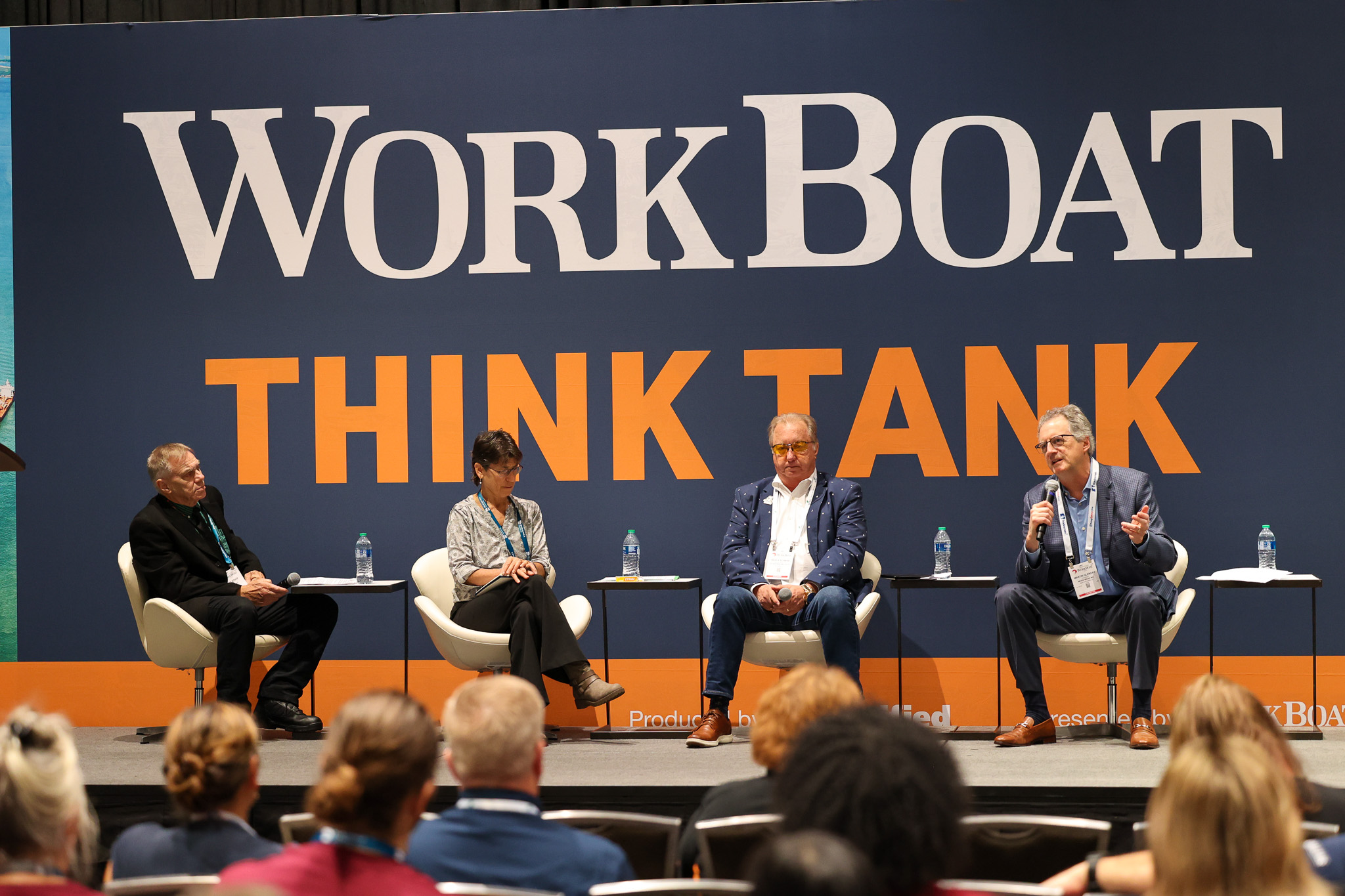Hiring and retaining workers was on top of everyone’s mind at the International Workboat Show in New Orleans this week. Although no one had a silver bullet to solve the workforce problem, training schools and maritime companies have developed new approaches to attract new talent and retain those they have.
They cited efforts to reach out early to young kids and their parents (and grandparents), offer good internet connections and comfortable living quarters on vessels, assure strong career paths within a company, make mental health services available, promote jobs as a unique adventure with good pay and benefits, and retool training to offer a digital-savvy generation more online instruction when appropriate.
Most participants agreed that the industry does a poor job of promoting itself as a great place to work, and that people beyond the rivers or coasts or those who don’t already have a family maritime connection know little about the profession or the importance of maritime jobs to the economy.
“We need to promote it as an industry that’s exciting,” said Martin Glenday, president of Moxie Media, a New Orleans-based media design and production company that works with maritime clients. “The PR has not been good. This is a great story that doesn’t get a lot of attention.”
Maritime schools are also rethinking how they recruit students, casting a wider geographic, demographic and age net for recruiting, and moving into training students for jobs in emerging energy fields.
Massachusetts Maritime Academy has developed a new niche in training for the fledging offshore wind industry, promoting this to cadets as a new and exciting career opportunity, and explaining to potential students the excitement of being able to train on a brand-new, state-of-the art training ship that is due to arrive at the academy in January 2024.
The academy, located on Cape Cod, has also extended its outreach programs to students starting in the fifth grade. “We invite them to campus, we are going into schools,” said Maryanne Richards, director of career and professional services at MMA told a WorkBoat Show session on workforce development. “Because of the changing demographics, with not as many students graduating from high school, we are doing more initiatives to children and their parents.”
MMA also offers a summer camp that gives youngsters a flavor of life on campus, experience a navigational simulator, board the school’s training ship and learn about jobs after graduation, she said.
At Delgado Community College in New Orleans, which has a Maritime and Industrial Training Center, the emphasis is on educating “parents, grandparents, brothers and sisters” as well as well as potential students as young as 4-7th grades about maritime careers, according to Rick Schwab, senior director of workforce development and education.
“We let people sit in on navigation class, visit simulators,” he said, adding that the school has prepared a list of qualifications for certain maritime jobs to match a job skill to training requirements. “We have a list of qualities to be competent in a job like mate or tankerman, and we show it to a parent or counselor. They didn’t realize that these vessels are multi-million dollar technical machines. We’re trying to get them to think out of the box of skilled labor being a more technical expertise.”
Schwab said it’s important to show students that there’s a progressive career path in the industry. “You need to give them goals to attain, give people promise and motivation,” he said. “We treat a deckhand like a captain because one day (he or she) will be a captain.”
Glenday at Moxie Media concurred, saying that “the young Generation Z is focused on technology, so if you don’t have good internet, and have no career path, they will leave and find a job elsewhere.” If a young person goes on a maritime company website and “it looks like crap,” he or she is not likely to want to work there, Glenday added. “Technology is the key to keep them engaged.”
Glenday added that some maritime students complain that too much training is done in a classroom and when possible should be moved online, because that’s where the new generation spends most of its time and expects it to be.
Worker retention and hiring has become a top preoccupation of top managers at inland barge companies. Merritt Lane, CEO of Canal Barge, New Orleans, told a Marine Money conference in New Orleans this week that he spends more time “marketing our company to our employees than to our customers. We all spend a significant time on vessels making sure we are taking care of the well-being (of crews).” He said Canal now has created a pipeline of mariners coming into the company. “It has been a lot of work, but we’re feeling we’re just about right now” with acquiring new talent.
Lance Sannino, president of Enterprise Marine Services, an inland tank barge operator based in Houston, added that as his company rebounds from the pandemic it will focus on employees in the near-term. “That’s where our investment will be.”




